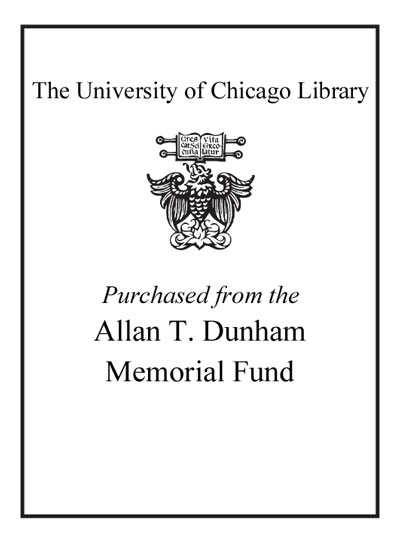Review by New York Times Review
THERE ARE PLENTY of women among the ranks of genre authors, but not many like Sara Paretsky, whose intellectually lively mysteries featuring her gutsy Chicago private eye, V. I. Warshawski, are fired by political causes and feminist social issues. Her latest, critical mass (Putnam, $26.95), hits a nerve with its historical back story about a Viennese atomic physicist named Martina Saginor, "a great scientist who had a gender handicap" and disappeared during World War II - a character inspired by the brilliant but unsung Austrian physicist Marietta Blau. The fictional Martina was last seen as a slave laborer, sent to a concentration camp after working at a German weapons lab in the Austrian Alps. Her young daughter, Käthe, escaped the camps via the Kindertransport, along with a childhood companion, Lotty Herschel. Now an elderly doctor practicing at a Chicago clinic, Lotty has heard alarming news about Käthe's 20-year-old grandson, Martin, who seems to have inherited his great-grandmother's scientific genius and has now gone missing from the energy technology firm where he worked. As a further challenge to V. I., who has taken the case as a favor to Lotty, Martin's mother is a hopeless drug addict who hasn't been seen since she escaped from a meth house where a murder was committed. The drug subplot is an unnecessary complication in an already busy story told in two parallel narratives set in different countries, running on separate timelines and involving four generations of characters. But if the plot mechanics are unwieldy, the character of Martina is the serene center of this fractured universe. Turned out of her job at the Radiation Research Institute, betrayed by a spiteful Nazi student, abandoned by the Nobel Prize-winner scientist who fathered her child, starving and hallucinating in a prison camp, Martina has nothing but science left to console her. "Physics can be just equations and formulas and graphs," writes Paretsky (who was coached in the subject by her husband, a particle physicist who taught at the University of Chicago). "But physics is also a place where you send your mind chasing after the infinite, searching for the harmonies that lie at the heart of nature." Paretsky makes us feel both her own love for science and her fury at the way women like Martina have been denied the pursuit of their passion. FEMINIST OUTRAGE ALSO fuels the politically pointed novels of the Danish writing partners Lene Kaaberbol and Agnete Friis. DEATH OF A NIGHTINGALE (Soho Crime, $26.95) finds Nina Borg, the righteous Red Cross nurse in this series, caught up in another moral quandary. Natasha Doroshenko, a Ukrainian woman who once found refuge at the Red Cross crisis center after taking a knife to her abusive Danish fiancé, is now wanted by the Copenhagen police for his murder. Two officers with the Ukrainian secret police are also hunting Natasha, who's suspected of killing her husband back in Kiev. Standing up to these authorities, Nina is determined to find Natasha, prove her innocence and reunite her with her daughter. Sad as it is, Natasha's story is almost upstaged by a related narrative set in a famine-stricken village in Ukraine in 1934 and involving the desperate choices made by two sisters too young to understand the consequences. Nina is all heart and her efforts to bring justice to women like Natasha are heroic. But compassion isn't enough to solve the social evils that marginalize and then destroy the weak and the helpless. STEVE WEDDLE'S WRITING ÍS downright dazzling in country HARDBALL (Tyrus Books, cloth, $24.99; paper, $16.99), a first novel told in intertwined stories that present a shattering portrait of a depressed rural area on the Arkansas-Louisiana border that seems to be reverting to its wilderness state. Several of the narratives are seen through the eyes of Roy Alison, fresh out of prison and looking to start a new life. But things have changed since he's been away: There's no work, drugs are rampant, families are breaking up, people are losing their homes to the banks, children are giving themselves up to casual cruelty and the boys who went off to war are dying. In this climate of despair, it doesn't take Roy long to hook up with his scary cousin Cleovis to pull off a string of crimes that somehow make him feel alive in this land of the living dead. IT'S REALLY PUSHING it to Call Fannie Flagg's latest novel, the ALL-GIRL FILLING STATION'S LAST REUNION (Random House, $27), a "comic mystery," as her publisher does. Call it, rather, the mystery of Sookie Poole's true identity. Sookie is one of those guilelessly entertaining Southern gals who live only in the author's books. Having spent all her life in Alabama under the critical eye of her tyrannical mother (now there's a character who deserves killing), Sookie is stunned to learn that she isn't who she thinks she is. After a lifetime of looking in the mirror and seeing "a Southern Methodist English person," she discovers that she's actually "an illegitimate Catholic Polish person." Sookie's detective work, tracing her new identity, takes her all the way to Pulaski, Wis., and into the lives of four ebullient sisters who ran their father's gas station during World War II. Honestly, who wouldn't want to be part of that family? ?
Copyright (c) The New York Times Company [November 24, 2013]
Review by Booklist Review
*Starred Review* As in previous V. I. Warshawski mysteries, Paretsky works elements of Chicago history into the story, this time referencing the city as a nexus for atomic research and linking the science to the work conducted in Austria during the Nazi occupation. When Judy, the drug-addicted daughter of Kitty Binder, a Holocaust survivor whom Lotty Herschel knew in wartime Vienna, calls Lotty for help and then disappears, Lotty turns to Vic. The investigation leads to a burned-out crack house and the mutilated body of a dead man but not to Judy. Kitty, a bitter, uncooperative, seemingly paranoid crank, seems uninterested in finding her estranged daughter, but she hires Vic to locate her grandson, giving Vic two missing-persons cases in the same family. Twentysomething Martin, whom Kitty raised, has vanished without a trace, and Vic and his grandmother are apparently not the only ones who want to find him. Martin's boss is afraid that the young man, a physics genius, has absconded with sensitive company information, and he isn't too forthright about what will happen if he finds Martin first. It's clear V. I. has several puzzles to solve, and, as usual, she becomes the proverbial stick in the hornet's nest, putting herself at risk as she follows a twisted trail of ruined lives rooted in the international race to develop an atomic weapon. Vic is at her stubborn, reckless, compassionate best in this complicated page-turner about selfish secrets passed down through generations. HIGH-DEMAND BACKSTORY: Paretsky has been on a roll lately, her long-running, trailblazing series at its most dynamic since the early days.--Zvirin, Stephanie Copyright 2010 Booklist
From Booklist, Copyright (c) American Library Association. Used with permission.
Review by Publisher's Weekly Review
V.I. Warshawski helps out her closest friend, Vienna-born Dr. Lotty Herschel, when an unwelcome figure from Lotty's past resurfaces in MWA Grand Master Paretsky's stellar 17th novel featuring the Chicago PI (after 2012's Breakdown). Lotty and another Viennese girl, Kitty Binder, were sent to London in 1939 on the Kindertransport. After the war, Lotty settled in Chicago, while Kitty arrived in the area some years later. Lotty gets in touch with V.I. after Kitty's drug-addicted daughter, Judy, leaves a message claiming that she and her college-age son, Martin, whom she had left in Kitty's care, are in danger. Judy then vanishes. V.I.'s investigation takes her from the high-tech world of computer engineering to a literally stinking meth pit in a farm town outside Chicago, on the hunt for the now-missing Judy and Martin. V.I. also unearths WWII secrets related to the race to build an atomic bomb. Paretsky builds the suspense by deftly weaving the contemporary narrative with flashbacks to Lotty's Austrian childhood. Author tour. Agent: Dominick Abel, Dominick Abel Agency. (Nov.) (c) Copyright PWxyz, LLC. All rights reserved.
(c) Copyright PWxyz, LLC. All rights reserved
Review by Library Journal Review
Paretsky's latest in her long-running series (after Breakdown) begins with a frantic call from the daughter of Kitty Binder, a woman involved in the early life of Dr. Lotty Herschel including their escape from the Holocaust in 1939 and their ultimately landing in Chicago. The story moves to the meth labs of rural Illinois and the disappearance of Kitty's gifted grandson, integrating World War II atomic research with the atomic world of the present day. V.I. Warshawski's integrity and conscience shine through as she makes life-altering decisions for herself, her closest friends, and her clients. Paretsky includes characters and events from previous series entries, but her books may stand alone since she includes enough background information to bring the reader effortlessly up-to-date. The writing is superb, with understated humor and marvelously descriptive language. Susan Ericksen, the ongoing narrator of the series, makes a great Warshawski! Verdict Recommend to listeners of works by Nevada Barr, Sue Grafton, and Lene Kaaberbol and Agnete Friis.-Sandra C. Clariday, Tennessee Wesleyan Coll., Athens (c) Copyright 2014. Library Journals LLC, a wholly owned subsidiary of Media Source, Inc. No redistribution permitted.
(c) Copyright Library Journals LLC, a wholly owned subsidiary of Media Source, Inc. No redistribution permitted.
Review by Kirkus Book Review
V.I. Warshawski tackles the monstrous legacy of early nuclear-fission research. Somebody is trying to kill her, strung-out Judy Binder tells Dr. Charlotte "Lotty" Herschel, who runs the Chicago drug clinic where she's been a revolving-door patient. So Lotty asks her old friend V.I. Warshawski to drive downstate to Palfry Township to check on her. V.I. doesn't find Judy, but she does find two mastiffs, one shot to death, the other seriously wounded, and the corpse of Judy's friend Ricky Schlafly, a meth cooker who came home from Chicago to get killed in the middle of a cornfield. Still looking for Judy, V.I. questions her mother, Kitty Binder, in Skokie and learns that Judy's son Martin, a brainy computer tech at Metargon, went missing 10 days ago. In the first of many bait-and-switch instances, V.I. decides that she'd rather hunt for Martin than Judy and even talks hard-bitten Kitty into bankrolling her search. The trail will lead her all the way back to the Uranverein, where Kitty's mother, Martina Saginor, worked with a circle of Nazi physicists to split the atom even though they knew their success would fuel Hitler's war machine. Back in the present, meanwhile, Cordell Breen, who inherited Metargon ("Where the Future Lies Behind") from the father who developed the BREENIAC architecture that drove early computer research, makes it clear that he's just as interested as Kitty in the disappearance of Martin, who'd been closer than he would have liked to Breen's Harvard-educated daughter Alison. There'll be more fatalities, more digging into the past, more family skeletons, more brushes with intrusive government agencies and more flashbacks to the early years of the century before a showdown at another farm finally makes it safe for V.I. to venture out in public again. Beneath the fierce scientific rivalries, the targets are so familiar that there's little room for mystery, though V.I. has a charismatic and blistering way of bringing old secrets to light.]] Copyright Kirkus Reviews, used with permission.
Copyright (c) Kirkus Reviews, used with permission.
Review by New York Times Review
Review by Booklist Review
Review by Publisher's Weekly Review
Review by Library Journal Review
Review by Kirkus Book Review


